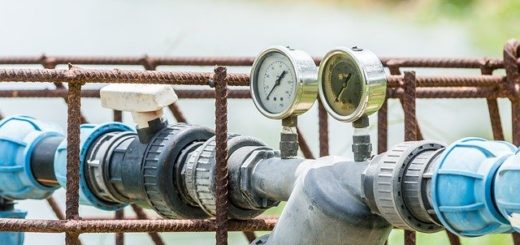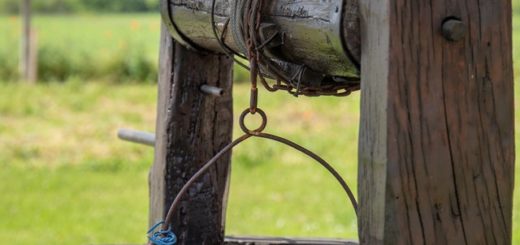Call for Consultancy to implement a Training of Trainers Program for Coffee Farmers on Good Agricultural Practices in Embu County – Good Neighbors International
Ref Number KGN/SED/KOICA/EMBU/2023/003.
Project Location Makengi Location, Runyenjes Subcounty in Embu County
Introduction
Kenya Good Neighbors is an International, Humanitarian and Development NGO in General Consultative Status with the United Nations Economic and Social Council (UN ECOSOC). Our greatest mission is to improve the lives of others- especially those of children- through education, community development, health and sanitation, and disaster relief projects.
Kenya Good Neighbors (KGN) was established in Kenya on 14th December 1995. Kenya Good Neighbors is currently operating projects both in rural and urban areas. In urban areas, we have Korogocho CDP which is in Kasarani Sub-County, Dandora CDP which is in Njiru Sub-County and Mukuru CDP is within Makadara Sub-County. We also have rural projects in Trans Mara SubCounty (Meguarra CDP), Gucha Sub-County (Ogembo CDP), Kajiado Central Sub-County known as (Bissil CDP) and Rarieda Sub County (Rarieda CDP). KGN also established various special projects at the community level including Mwamba Oibor in the rural area, Kajiado County, Cereal Project in Trans Mara Sub County, Green Light Project in the Urban area, Nairobi County, and the coffee project in Embu County.
Coffee project
The project is located in Embu County which is approximately 120 kilometers northeast of Nairobi, on the south-eastern side of Mount Kenya, on the humid highland slopes of the mountain. Coffee is a major export crop in Embu and is grown in the upper middle altitude zones, about 1,400 meters above sea level on the slopes of Mt. Kenya. Nearly all the coffee is grown by smallholders in Embu. The majority of coffee farmers in Embu County are small scale and they sell their coffee through farmers’ societies. These Societies are still struggling with perennial problems of poor management, dilapidated infrastructure, unstable coffee markets, and lack of finances among others. Farmers in the area face several challenges which include; low farming working capital, outdated farming practices and technologies, poor coffee quality seedlings, and low farm yields, worsening climatical conditions among others which have led to decreased coffee income. Kenya Good Neighbors is implementing a three-year (2022 to 2025) coffee project in Embu County funded by KOICA. The project objective is to increase coffee farmers’ income, through capacity building and strengthening cooperatives’ operation systems. The main components of the project will include: Training of trainer’s program, that is aimed at training promoter farmers who will train other farmers within their localities to improve coffee production, conducting soil analysis, replacing the old disk pulpers with eco pulpers, replacing old coffee drying beds with metallic beds, repairing factories facilities like fermentation tanks, washing channels, building solar greenhouse and linking farmers to direct markets among others.
Scope of works
Kenya Good Neighbors seeks to implement a training of trainer’s program that will equip the selected 500 promoter farmers with adequate knowledge and skills to become trainers to other farmers within the Society zone. The program will run for a period of one month, with the objective of empowering and preparing the select farmers with necessary skills, techniques and knowledge to become effective trainers to other farmers within their villages and in the long-run improve overall quality of coffee production and sustainable farming practices.
Place of performance
Services under this solicitation shall be performed within Makengi Sublocation in Runyenjes Sub County, in Embu County.
Period of performance and estimated level of effort
All services required under this solicitation will be delivered for a period of 5 month. The estimated level of effort shall be approximately one hundred and fifty (150) Days.
Objectives of the consultancy
Main Objectives
The purpose of this consultancy is to equip farmers with necessary skills and knowledge to become effective trainers to the other farmers of the Society. This program aims to improve the overall quality and quantity of coffee production by providing farmers with the tools and techniques they need to achieve sustainable farming practices. The program will cover a wide range of topics such as:
a) Climate smart agriculture: this should cover topics such as climate change adaptation and mitigation, eco-friendly soil management, and sustainable land management practices to ensure the long-term sustainability of their farming business and in the face of changing weather patterns.
b) Crop management: Training area should cover topics such as soil preparation, planting techniques, coffee pruning techniques, application of agricultural inputs (organic and inorganic) in general farming, coffee plants variety needs and necessary attention for better yields and general coffee management annual calendar among others
c) Disease management: This will include, identification of common coffee diseases, disease prevention, integrated pest management (IPM), chemical control, disease monitoring and diagnosis, disease management and planning.
d) Harvesting and post harvesting practices: Training should cover harvesting techniques to ensure only ripe cherries are picked, minimizing damage of cherries and plant during harvesting, sorting coffee after harvesting and necessary hygiene of coffee harvesting tools etc.
The above training areas are not conclusive; the client and the selected consultant may add more training areas based on the need assessment.
Specific Tasks
The selected consultant will
a) Identifying the training needs: Conduct a need assessment to identify the specific training needs of the coffee farmers, taking into account their level knowledge, skills and experience in coffee farming.
b) Develop a training curriculum: Based on the identified training needs, develop a comprehensive training curriculum that covers the key areas of coffee farming.
c) Developing training materials: The consultant will be responsible for developing training materials, including handouts, manual, posters and visual aids, to support the trainings sessions and enable the TOTs to continue learning and sharing their knowledge with other farmers. This includes printing of the training materials, which should be in both English and Kiswahili.
d) Delivering training sessions: The consultant will be responsible for delivering training sessions to the TOTs, focusing on developing their skills and knowledge in the key areas identified in the training curriculum. These sessions will be delivered in person depending on the availability of farmers.
e) Facilitating interactive learning: The consultant will commit to facilitate interactive learning activities during training sessions to encourage active participation and engagement with the TOTs. This may include group discussions, role playing and practical demonstrations.
f) Providing Technical support: This will include answering questions and providing advice on specific issues related to coffee farming to the farmers and program in general.
g) Monitoring and evaluation:
i. Monitor and evaluate the effectiveness of the training program, collecting feedback from the coffee farmers and making any necessary adjustment to the training curriculum and delivery.
ii. Conducting physical monitoring of farms to evaluate the effectiveness of training at the farms level.
h) Final assessment and reporting: At the end of the training program the consultant will evaluate the program by collecting feedback from the farmers and make an overall formal report. This report should include training session report and farms assessment
Obtain the full tender document at https://goodneighbors.ke/tenders/








